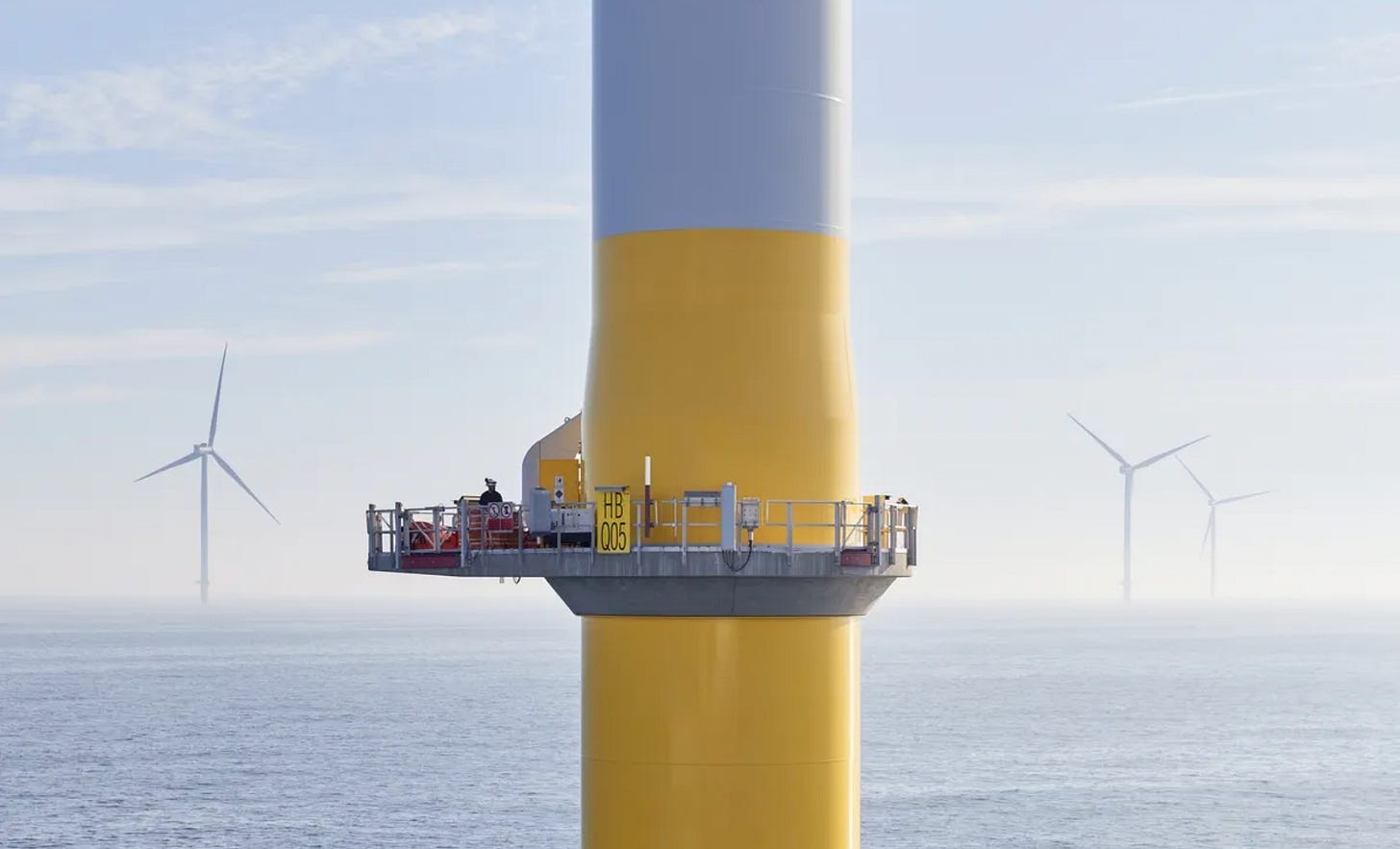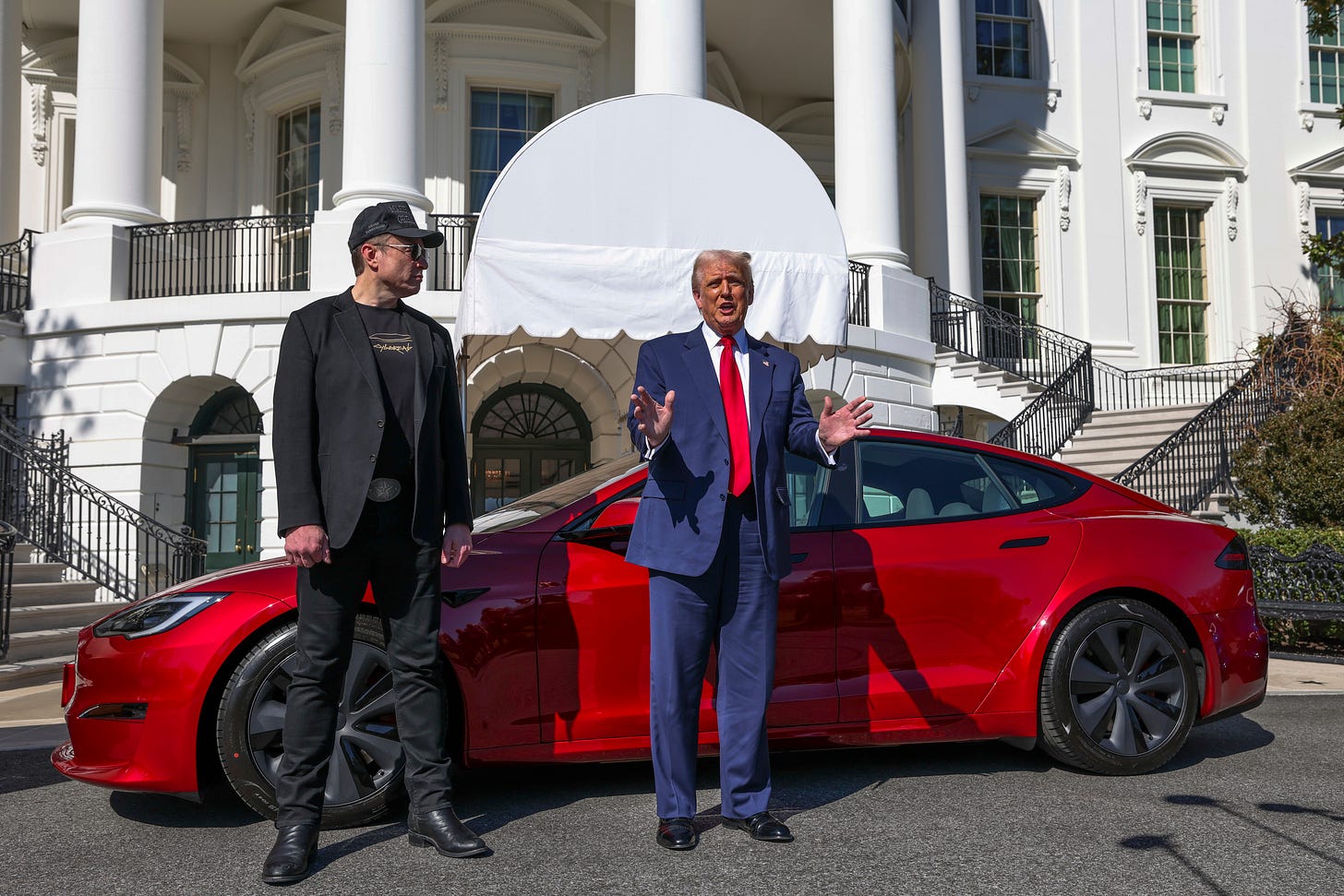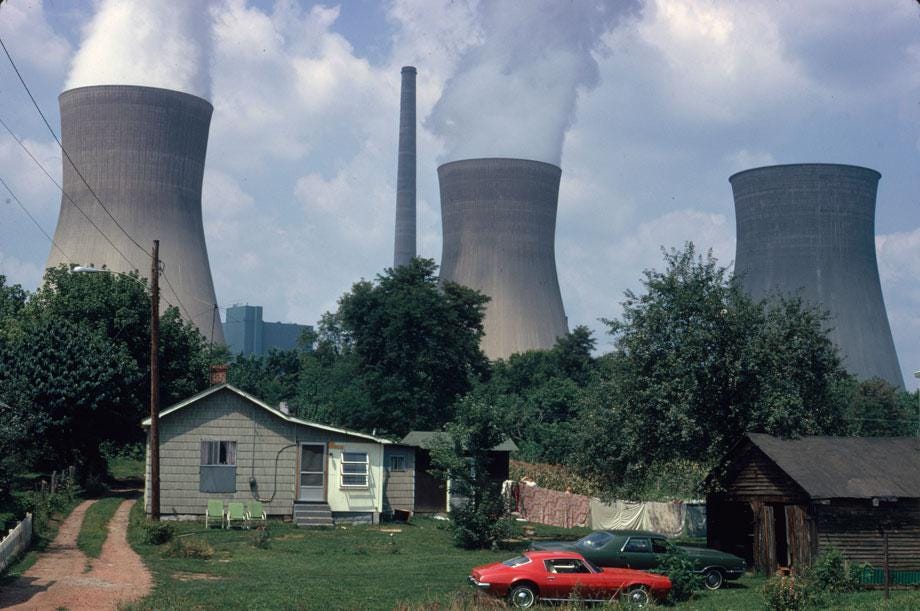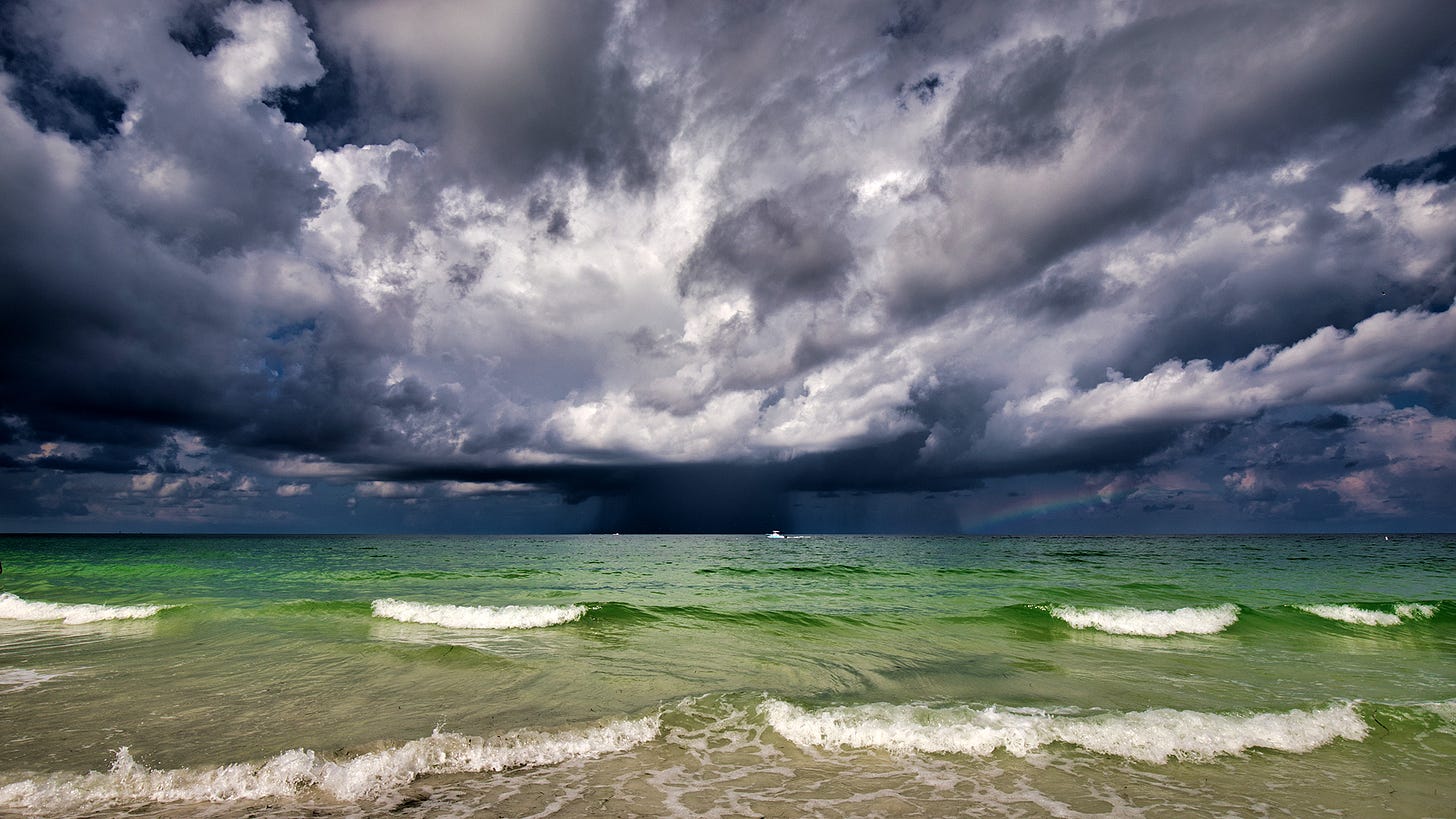New EPA proposals envision massive return of coal
Welcome to Callaway Climate Insights, your daily guide to global climate finance. Please enjoy, and share with your colleagues.
Today’s edition of Callaway Climate Insights is free for all our readers. We really want to bring you the best and latest in climate finance from around the world. Please subscribe now.
Water cooling towers of the John Amos Power Plant loom over a Poca, W. Va., home in August 1973. The coal-fired power plant was built in 1971 and is in operation today. It’s owned and operated by Appalachian Power, a subsidiary of American Electric Power. Photo: Harry Schaefer/EPA/U.S. National Archives.
Any business manager worth his or her annual bonus would know to delay implementation of all new government regulations passed in the final year of a presidential term. That’s why it’s unlikely much was done after President Joe Biden’s biting new EPA restrictions on power plant emissions last spring.
Since they were not due to require action before 2032, the rolling back of them by new EPA Administrator Lee Zeldin probably won’t have much impact. But Zeldin and other regulators from President Donald Trump’s team want to go a lot further, rolling back rules from former President Barack Obama in 2015, which have been implemented.
Most chilling of all, they want to rollback something from 2009 called the “endangerment finding,” which embedded in all EPA regulations that power plants emissions were indeed harmful and became the basis for all future regulations.
It’s unclear whether removal of the endangerment finding will be in Zeldin’s final proposal. But if so, it would be a harbinger of a massive attempt to fire up old coal plants, many of them closed in the past 15 years. Some environmentalists argue it could return us to the polluting days of the early 1970s, before the EPA was established by then Republican President Richard Nixon.
Most energy experts agree in the battle for new energy dominance in the AI era, the coal train has left the station. But the timing of Zeldin’s proposal, coming as Congress debates the repeal of the Biden-era clean energy subsidies, strikes us as particularly interesting. Almost as if Trump were holding these EPA moves over the heads of Congress as they debate clean energy’s near-term future.
It’s hard to find anyone, outside of China, to defend coal these days. Until the Trump team now. These EPA proposals would extend coal’s lifeline in the U.S. by at least a decade. A bridge for AI growth or not, in almost every case that will be bad for business, not to mention the environment.
Don’t forget to contact me directly if you have suggestions or ideas at dcallaway@callawayclimateinsights.com.
Follow us . . . .
Twitter | LinkedIn | Facebook | Instagram
Thursday’s subscriber insights

Fund managers turn to Europe as Trump cuts U.S. climate policies
. . . . Global climate investors are still bullish on sustainable opportunities, just not in the U.S. and not now.
As President Donald Trump and Congress decide just how much to slash existing U.S. tax subsidies on renewable energy to pay for the “big, beautiful bill,” most investors are in a wait-and-see mode. But the majority agree that for the next few years the opportunities will be elsewhere, according to a survey this week.
A rising number of some 300 managers globally polled by investor group Robeco said they would direct their attention to Europe and in some cases Asia for the next few years, where climate progress is still being made. The managers added that they believe the U.S. moves will damage the world’s efforts to mitigate global warming, but that they only see them as temporary — until Trump leaves office.
The trend was underscored by news this week that Blackstone BX 0.00%↑, the $1 trillion fund manager making a name for itself in energy infrastructure investments, will direct about $500 billion in new investments to Europe and other international markets in the next decade.
We’ll all have more clarity in a week or so on just how much the new tax bill will cut back or phase down renewable energy programs, many of them funded by foreign firms. But for many global investors, the writing is already on the wall.
‘Beautiful’ bill contains ugly surprise for EV owners

. . . . While much has been made about the slashing of subsidies for electric vehicles in President Trump’s coming budget bill, a little-noticed provision buried deep in the legislation actually slaps a tax on EV owners as well, writes Bill Sternberg. The bill, as passed by the House so far, would tax owners of EVs $250 a year and owners of hybrids $100 a year, arguably to pay for repairs to federal highways the same way gas taxes do. While there is a legitimate debate about how much EV owners should contribute to road maintenance, Sternberg argues the timing and size of the tax in the bill makes it hard to see it as anything else but politically driven.
Among early challenges of AI, how NOT to use it
. . . . There are compelling environmental reasons to limit your personal use of AI tools, even if they are the wave of the future, writes Mark Hulbert. Among them is the fact that for the next several years AI will mostly be using dirty fossil fuels to power its development. But as AI becomes increasingly ubiquitous on our phones and computers, and its energy demands increasingly weigh on electric grids, turning it off is becoming more and more of a challenge. Hulbert details how to limit your usage on several popular devices.
Editor’s picks: Schwarzenegger says ‘stop whining’; plus, the gate to hell
Watch the video: Arnold Schwarzenegger, actor, former California governor and environmental campaigner, has said people should “stop whining” about President Trump’s approach to climate change and understand they must take action themselves. Speaking to the BBC’s Laura Kuenssberg at the Austrian World Summit, organized by Schwarzenegger’s Climate Initiative, he said the U.S. president could not prevent progress on tackling the threat of global warming. “What do you do? We all have a responsibility. You think action comes only for the whole world out of Washington, the White House?” He said people needed to understand the obstacles to change but not use them as an excuse for inaction.
Darvaza gas crater’s flames dim
Is the “door to hell” closing? Maybe it’s just cooling off. The Darvaza gas crater, also known as the Door to Hell or Gates of Hell, is a collapsed natural gas field in a crater in Turkmenistan. Hundreds of fires burn in the floor and rim of the crater. The crater has been burning millions of cubic feet of natural gas annually since 1971. Interesting Engineering reports that researchers from Turkmengaz, the country’s state-run gas company, say the flames are visibly weakening. The reduction is nearly threefold, Irina Luryeva, director of the state-owned energy company. Luryeva also said recent engineering efforts have focused on drilling numerous containment wells around the site to capture the methane before it escapes into the atmosphere.
Latest findings: New research, studies and projects
Dark side of AI
Data centers, high-end graphics processing units, and cloud-based systems are significant drivers of global electricity consumption, write the authors of this paper titled The Dark Side of Artificial Intelligence – The Environmental and Economical Cost of Intelligence. “Moreover, the rapid development of AI hardware leads to increased e-waste and resource exhaustion, further straining environmental sustainability. This essay aims to offer a balanced and multifaceted perspective on the double role of AI — highlighting how it can be a driver of economic development and an environmental burden.” Authors: Abrar Pathan, Kushal Patil, Prachi Patil, Shreyas Patil, Sanjana Petare, Sinhgad Institute of Management
More of the latest research:
Myth versus Reality: Cross-Country Review of Carbon Pricing Schemes
Wave Energy Resources and Hot-Spots of Wave Power in the Caribbean Sea
Words to live by . . . .
“We must realize the potential of the blue economy for our ecosystems, our economies and our communities. … If we save the sea, we save our world.” — William, Prince of Wales, speaking at the Blue Economy and Finance Forum in Monaco.






Better to use coal some more and natural gas and then skip the waste of W&S and go hard for nuclear.